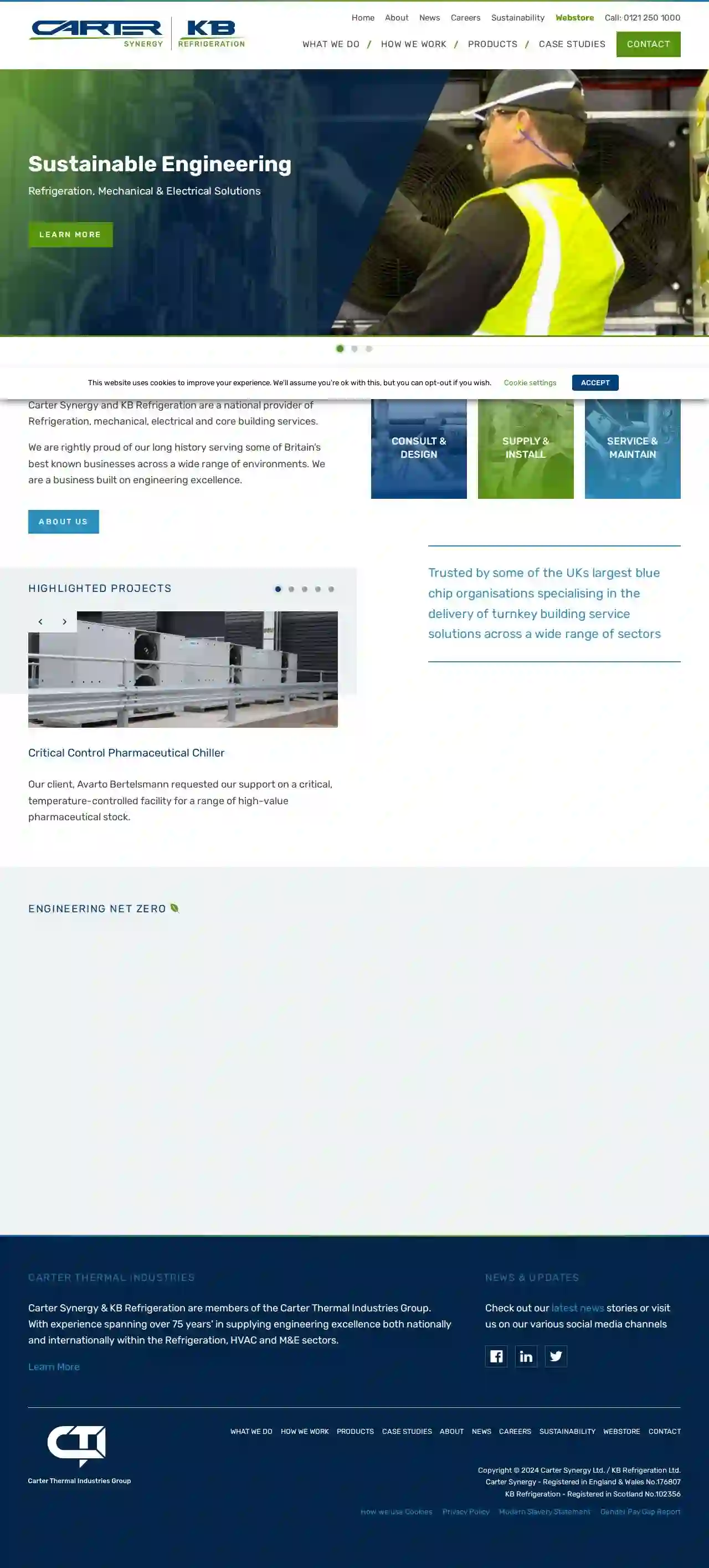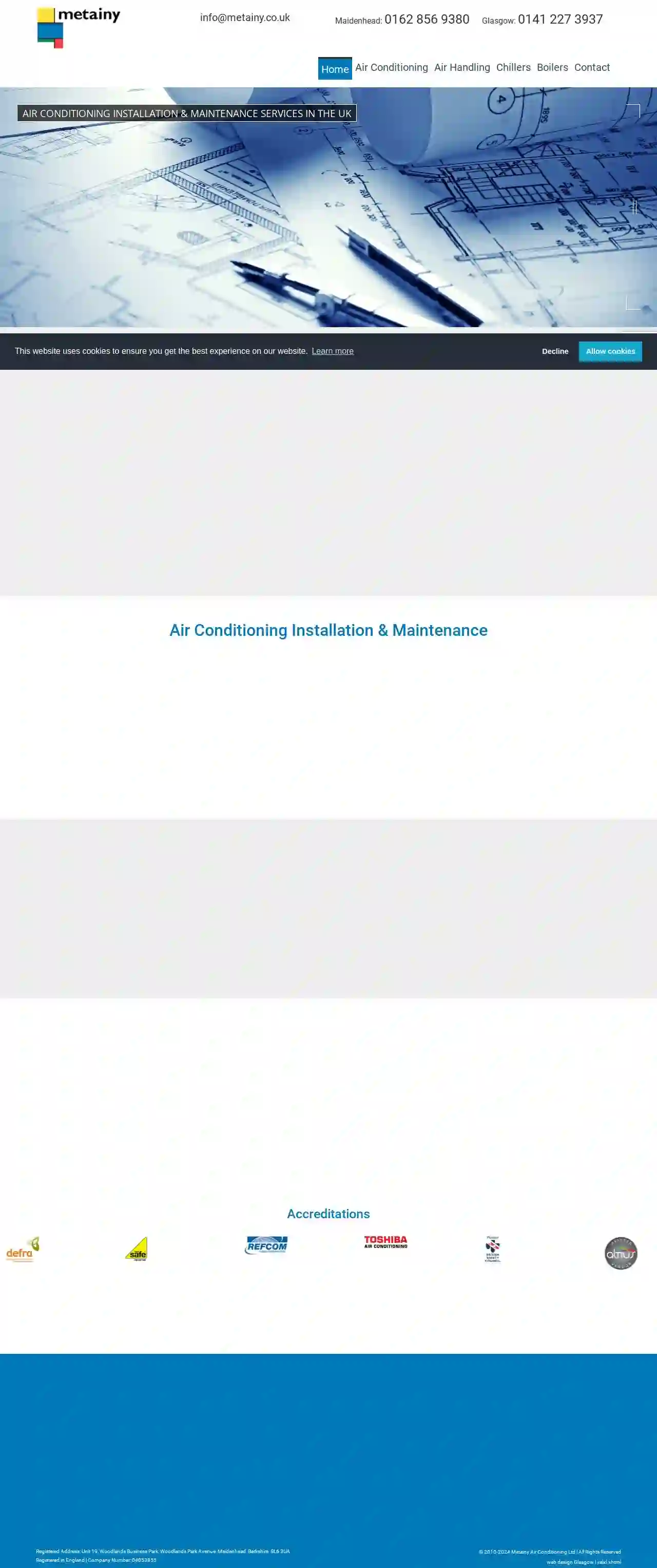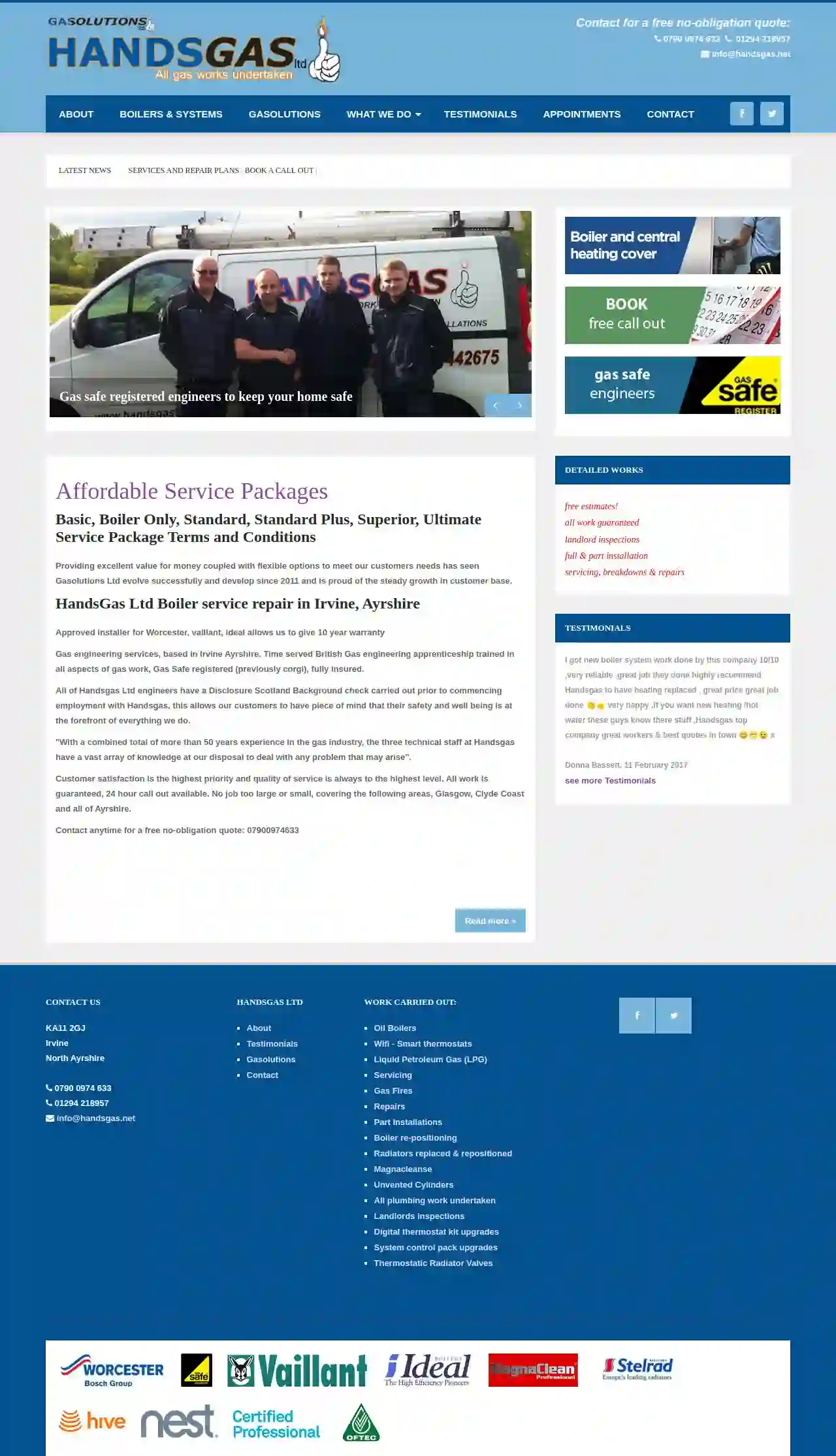Boiler Installation Kilbirnie
Top Boiler Replacement in Kilbirnie
Receive up to 3 Boiler Installation quotes for your project today! Compare profiles, reviews, accreditations, portfolio, etc... and choose the best offer.

HBE (Glasgow)
London, UK, 123 London Road, SW1A 1AA, GBShaping the future of legionella control. HBE is a legionella control and water hygiene specialist with 20 years of experience delivering reliable water hygiene and legionella control services across the UK and Ireland. Our research includes delivering the latest technology for water monitoring, in addition to some of the most advanced water treatment and monitoring research to ensure the most effective Legionella control. We continually focus on innovation, developing new methodologies and consistently enhance the methods used to reduce water risk.
- Services
- Why Us?
- Accreditations
- Our Team
- Testimonials
- Gallery
Get Quote
K B Refrigeration
4.528 reviewsGlasgow, GBCarter Synergy and KB Refrigeration are a national provider of Refrigeration, mechanical, electrical and core building services. We are rightly proud of our long history serving some of Britain’s best known businesses across a wide range of environments. We are a business built on engineering excellence. Our showroom is a testament to our commitment to innovation and sustainability. It provides a platform for us to showcase our extensive range of manufactured products and services. Carter Synergy & KB Refrigeration are members of the Carter Thermal Industries Group. With experience spanning over 75 years’ in supplying engineering excellence both nationally and internationally within the Refrigeration, HVAC and M&E sectors.
- Services
- Why Us?
- Accreditations
- Gallery
Get Quote
RPW I Underfloor Heating, MLCP and Heat Pump Supplier
4.86 reviews24 McDowall Street, Paisley, PA3 2NBT, GBFounded in December of 2011 and based in Glasgow, UK, Renewable Products Warehouse is a heating equipment supplier, with a speciality in supplying water based underfloor heating systems, air source heat pumps and multilayer press plumbing solutions to the UK.Backed by a team of experienced engineers who have been at the forefront of the UK underfloor heating market since 1997, we are constantly striving to innovate and introduce simple and yet cost effective plumbing and heating solutions to the UK consumers.
- Services
- Why Us?
- Gallery
Get Quote
Andrews Air Conditioning
Glasgow, GBAndrews Sykes is a global company with over 165 years of experience providing bespoke HVAC and pumping solutions. We have a unique history of innovation and expertise, dating back to 1857, and we continue to lead the way in the industry today. Our extensive fleet of equipment is available for hire nationwide, 24/7, ensuring that our customers always have access to the solutions they need, when they need them. We are committed to providing our customers with the highest quality products and services, and we are proud to be a trusted partner for businesses of all sizes.
- Services
- Why Us?
- Gallery
Get Quote
Redmyle
Hillington Park, 35-37 Montrose Avenue, Glasgow, G52 4LA, GBRedmyle is a nationwide heating, cooling, ventilation, generator, and pumping equipment hire specialist. We are experts in the hire of portable, temporary; air-conditioning, chiller, heating, pump and generator and dehumidification equipment nationwide. With a wide range of products and services, we cater to various industries and provide 365-day service. Our team is dedicated to delivering exceptional customer service and ensuring that our customers receive the best possible solutions for their needs.
- Services
- Why Us?
- Testimonials
- Gallery
Get Quote
McCrea's ClimateCare
4.978 reviews650 Stewart Street, Renfrew, K7V 1Y6, GBMcCrea's ClimateCare has been serving Renfrew and Arnprior area customers for over 40 years. If you are outside of Renfrew or Arnprior please review our service area and we will do our best to help! McCrea's ClimateCare has stayed true to its founding principle: making sure that every customer is completely satisfied offering our service "The McCrea Way". We take pride in carrying the best equipment for fair prices. We are a proud carrier of Napoleon furnaces and air conditioners. Our reputation precedes us with 90% of our business resulting from referrals and existing customers. We love to do a great job, read your online reviews, see our customers smile, and then hear the neighbours call us about the friendly HVAC contractor or prompt air conditioning service, completed "The McCrea Way". Buy Local, Buy Canadian. COMMITTED TO BEING THE BEST McCrea's ClimateCare is a member of the ClimateCare Cooperative Corporation. ClimateCare is a network of independent heating, ventilation and air conditioning (HVAC) contractors. This 100 percent Canadian, member-owned organization is Canada's largest heating and cooling cooperative. ClimateCare members are dedicated to on-going training and technical excellence in order to provide superior customer service and follow through on our We C.A.R.E. promise of Comfort, Accountability, Reliability, and Excellence.
- Services
- Why Us?
- Accreditations
- Testimonials
- Gallery
Get Quote
Metainy Air Conditioning Limited
Unit 19 Woodlands Park Avenue Maidenhead Berkshire SL6 3UA, Unit 19 Woodlands Park Avenue Maidenhead Berkshire, Maidenhead, SL6 3UA, GBMetainy is a group of companies based in the UK providing a fully comprehensive service for the provision and planned preventative maintenance. Metainy provide air conditioning installation services UK wide including industrial air conditioning, retail air conditioning and domestic air conditioning. Metainy is a group of companies based in the UK providing a fully comprehensive service for air handling unit (AHU) Refurbishment and replacement. Metainy provide air handling unit services in England, Scotland, Wales and Ireland including industrial air conditioning, retail air conditioning and domestic air conditioning. Metainy Air Conditioning undertake the replacement of rooftop or plantroom mounted; air or water cooled chillers. At some stage in their life all chillers reach the point where the costs to continue to repair and maintain them outweigh the cost of replacing. Metainy Air Conditioning can design and install boiler packages from a single boiler up to multi boilers fitted to a rig system in specific plant rooms with a full building management system. Replacing your old boiler with a new energy efficient one could result in reduced energy bills. Metainy comprises of a group of UK based companies, who for over thirty years have provided a fully comprehensive approach to the design, installation and maintenance of air conditioning, ventilation, refrigeration, and heating services within the commercial and industrial sectors. The company can readily provide air conditioning installation services across the whole of the British Isles and are equally proficient in carrying out maintenance on all forms of mechanical and electrical building services. With offices located in Maidenhead 0162 856 9380, England and Glasgow 0141 227 3937, Scotland, metainy are perfectly equipped to provide a personal service to all clients across the UK and Europe.
- Services
- Why Us?
- Accreditations
- Gallery
Get Quote
Handsgas Ltd
4.722 reviewsIrvine, North Ayrshire, KA11 2GJ, GBHandsgas is a gas engineering services company based in Irvine, Ayrshire. With over 50 years of combined experience in the gas industry, the company provides a range of services including boiler installations, servicing, and repairs. They are Gas Safe registered and fully insured, and their engineers have Disclosure Scotland Background checks. The company prides itself on providing excellent value for money and flexible options to meet customers' needs. They are approved installers for Worcester, Vaillant, and Ideal, and offer a 10-year warranty on their work. Handsgas is committed to customer satisfaction and quality of service, and has a team of experienced and knowledgeable engineers who can deal with any problem that may arise.
- Services
- Why Us?
- Accreditations
- Our Team
- Testimonials
- Gallery
Get Quote
AV Gas Ltd
515 reviewsKilmarnock, KA1 1AA, GBAV Gas specialises in boiler repair, installation, and servicing in Ayrshire and Glasgow, taking care of your heating and hot water with skill and safety. Alexander is a fully qualified and gas-safe registered heating engineer with over 15 years of experience. His expertise lies in fault finding and repairs, and he takes extreme pride in providing safe and efficient solutions for your heating and hot water problems. AV Gas is committed to transparent service, so you'll always know the scope of work and associated costs upfront. AV Gas is located in Kilmarnock, Scotland, and serves the areas of Ayrshire and Glasgow.
- Services
- Why Us?
- Accreditations
- Our Team
- Gallery
Get Quote
Boilers For Free
11 reviewsGlasgow, GBBoilers For Free is a company that helps homeowners in Scotland access government-backed ECO4 grants for heating upgrades and energy savings. They offer free boilers, air source heat pumps, insulation, and solar panels to eligible homeowners. The company has agreements with local authorities throughout Scotland to offer the 'Flexible Eligibility Scheme' (LA FLEX), which expands eligibility criteria beyond traditional benefit requirements. Boilers For Free boasts over 10,000 ECO scheme installations and works with experienced partners who have over 40 years of experience in retrofit insulation. They emphasize their commitment to providing a warm, energy-efficient home while saving customers money on their heating bills.
- Services
- Why Us?
- Accreditations
- Gallery
Get Quote
Over 12,692+ HVAC Companies on our directory
Our HVAC companies operate in Kilbirnie & surrounding areas!
HVACCompaniesHub has curated and vetted Top HVAC Companies in Kilbirnie. Find the most trustworthy contractor today.